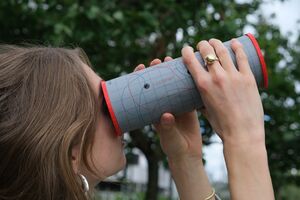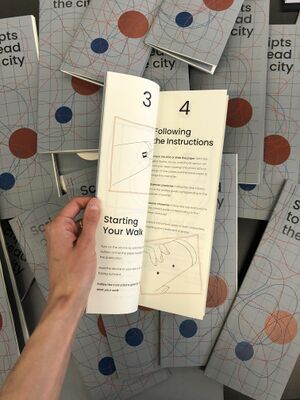Scripts to read the city
By reading we mean finding another possible form of seeing, moving, listening
The project imagines an urban environment that can be read, analyzed and criticized as a text. By reading the city in this way we find other possible ways of seeing, moving and listening. In a scripted city, marked by escalating levels of perfection, efficiency and control, the emancipatory aspects of urban life are undermined, allowing little room for anything that doesn't fit the image of the "norm".
Scripts to Read the City is an attempt to foster diverse experiences and uses of space, similar to a theater script interpreted differently by each actor. The tools of navigation are a device indicating which character to play and a guide, including a set of directions and instructions.
The project explores a relation between scripts and spontaneity, chance and control, and how scripts and unpredictability can enhance each other, stimulating imagination, encouraging us to engage with space from another perspective.
Link to our working pad
About
What is it?
a device
- device can be used to observe and to listen to
- has a shape of a tube that can be carried with you and accompany your walk
- assignes a character to follow, based on the built in tilt sensor that measure steps
a printed guide
- includes a manual for the device
- collect scripts
- template to make your own paper device
- template to write your own script
workshop
- project presentation
- make your own device
- a walk to perform scripts
- scripts writing
- feedback
Context
The project starts from a concept that an urban environment can be read, analyzed and criticized as a text. By aimlessly wandering and drifting we can name exactly what we see, hear. List making can make very explicit what is missing, and who is not present or what is successfully hidden. If the city can be read it can also be annotated Posters, newspapers, graffitti, clothing, performances in public squares, protest, traffic serve as footnotes, annotations with very diverse comments.
Many services and "smart solutions" provide comfort but also drastically reduce the level of unpredictability in a city. In a highly scripted cities, filled with prohibitions, navigations, how can we use scripts to enforce and strenghten unpredictability?


